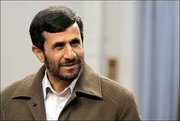http://imnutsincapsluv.blogspot.com/2005/10/oh-fuck-we-made-it.html
An after thought on the Mahatma
RULERS OF THE STATE (cunytry) cannot allow their moral convictions and religious feelings to dictate their actions
The cardinal rule is ‘in tne cuntry’s best interests
’Mahatma Gandi was shot and is hated by many if not all who suffererd due to the partition of India
Also one must not get intoxicated by the power u wield and wanting to cling to it
Many a war has bbeen fot to preserve the power by winning an election
As Indira Gandhi did and Bush too and Rajiv in Sri lnaka perhaps
To prevent dis we need the free press
a lott of matl on google has been censored under pressure from Govt.
under dis condition news becomes propaganda
we cannot allow dis to happen
BLOGGERS OF THE WORLD unite
Sexed up reports created the alarm of WMD, and innocent ppl in IRAQ died
and innocent ppl in USA, UK , Bali now pay the price
Monday, October 03, 2005
Subscribe to:
Post Comments (Atom)



























2 comments:
wuteva gets banned, can someone ban bombing innocents? jeeeez it's really stupid...Bali again!
Keshi.
The Last Shall Be First
Fifteenth Sunday after Pentecost
Proverbs 31:10-31 September 21, 2003
James 3:13-4:3, 7-8a Marsh Chapel
Mark 9:30-37 Boston University
Ever since I took on the responsibilities of this pulpit people have been asking me to preach about the great social issues of our time. Those of you who have heard some of my previous sermons know that I hold theological sound-bites in contempt: the Word of God is complex and I apologize but do not repent for burdening you with the many distinctions required to see things in perspective. Ethical and political issues are equally complex, with no single perspective of analysis or simple solutions. Christians do not have any special advantage over others in the analysis of problems of international war and peace, global economics, racial prejudice, or distributive and retributive justice. But Christians do have deep underlying ethical convictions that need to be expressed in measuring our responses to those great problems. And so people are right to call preachers to the responsibility of addressing them. It would be wrong for preachers to avoid that responsibility for fear of alienating those who disagree with their conclusions. Preachers also need the humility to recognize that honest disagreements among Christians must be borne with respect.
The particularly insistent cry to hear the Word of God about war and peace in our time comes from the fact that America has suddenly become an aggressor nation. Americans are accustomed to believe that aggressor nations are the bad ones, and we have prided ourselves on opposing them. The events of 9/11 made all the world recognize that the United States was the victim of terrorist aggression. The terrorists were murderers, not martyrs: the sacrifice of someone else’s life for one’s cause is murder even if one’s own life is lost in the process. The response to 9/11 should have been an intense international multilateral police action to identify and eradicate murderous terrorists. But that police action was subordinated to the rhetoric of a war on terrorism embodied in a virtually unilateral American war against Afghanistan for harboring terrorists, as if the vile but pitiful Taliban government could have done anything about El Qaeda had it wanted to. The result has been to make Osama bin Laden a Robin Hood hero to the world’s populations that identify with the underdog against the American bully, and the government of Afghanistan has been returned to a death-dance of warlordism. Then the United States almost unilaterally and against the opposition of many of its traditional allies attacked Iraq, beginning with an unsuccessful attempt to assassinate its leader. The initial justifications for the attack on Iraq—stockpiles of weapons of mass destruction and connections between Saddam Hussein and El Qaeda—were widely doubted at the beginning and in retrospect seem false. Many suspect them to be mendacious fabrications of the American government. I certainly don’t know the truth about that, but the increasing public feeling that the American government started the war for reasons other than the stated ones has brought our national conscience to a spiritual crisis: who are we to be imposing our will with such violence? We ask this while praying for our armed forces abroad who are at great risk.
The crisis in conscience surely comes in part from the fact that so little has been successful in the American aggressive wars. The Taliban are still a warlord power opposing Afghanistan’s puppet government, Osama bin Laden is still at large, as is Saddam Hussein; the government and material infrastructure of Iraq have been destroyed and their rebuilding with American money and military commitment is vulnerable to guerilla sabatage. The opposition to American bullying has now become a worldwide ideal of freedom and divine service, and does not need a leader. America’s traditional allies who had been rejected by our government’s unilateral policies are alienated. We will have decades of trouble. If the wars had been more successful, perhaps the crisis of conscience would not be so great. Nevertheless, now that the casualties in Afghanistan and Iraq far exceed those of 9/11, the American conscience asks what justifies America’s attempt to impose its will by virtually unilateral military force. The official answer is that righteous force is justified against dangerous evil. Whether the enemies identified by the American government are so evil as to justify eradication by force is a question I will not pursue here. The American conscience is in a spiritual crisis, however, because it has begun to doubt the righteousness of the American motive for war.
Where is the Christian gospel in all this? Where is our ethical bedrock from which we can erect a perspective for a Christian response? The ethics of most religions is based on a motif of reciprocity: as in the Golden Rule, do to others what you want them to do to you or, negatively, do not do to them what you wouldn’t want them to do to you or, more forcefully, an eye for an eye, a tooth for a tooth. Anastasia Kidd of the School of Theology here studied popular music’s responses to 9/11 and found that the country and western community, which has a strong Christian base of sorts, celebrated vengeance and punished singers who sang of mercy instead.
Christianity accepts the Golden Rule, but tentatively. In point of fact, Christianity has a much stronger motif for ethical and religious behavior than the Golden Rule: if someone slaps you on one cheek, turn the other also; if someone asks to borrow your coat, lend your cloak as well. Jesus’ chief lesson in leadership, according to John, was when he washed his disciples’ feet. St. Paul in Philippians said Jesus was in the form of God and took on the form of a slave. Jesus in Mark 10 said that it is harder for the rich to enter the kingdom of heaven than the poor, and in the same chapter, with parallel passages in the other gospels Jesus said that “many who are first will be last, and the last will be first.” We could multiply examples like these many times over. For Christians, the motif of humility trumps the motif of reciprocity. Humility trumps reciprocity.
In ethical matters, humility means something like putting others first. If someone slaps you in rage, do not reciprocate rage but turn the other cheek so that their rage can work itself out. If you don’t like someone slapping you, first you learn to love your enemy, the motif says, and then figure out the loving way to respond. If someone needs clothes, don’t give them just the minimum but see that they are cared for properly. Perhaps it would be better to change the economic conditions that make people needy in the first place.
Needless to say, this ethical dimension of the humility motif is not easy to reconcile with consumerism and the competitive elements of capitalism. And it is a stranger to American foreign policy in recent years, ironically at a time when Christianity is supposed to be influential in government. The ethics of democratic government is complicated because, as democratic, governmental policies and actions express the needs and wishes of so many constituencies. I do not want to suggest an easy reading of Christian and anti-Christian trends. The democratic process that reconciles so many diverse interests in concrete policies might easily look as if it is guided by a “me first” rather than humility motif. Nevertheless, Christians are among the interest groups in the American democracy and often have prevailed to put the needs of poor, disenfranchised, and angrily frustrated people, as well as enemies, onto the national agenda. Sometimes this has shaped large scale policies, for instance the development of the land-grant universities in the 19th century and the Marshall Plan for rebuilding the economies of enemies in the 20th.
Now, however, the “me first” motif seems to govern important American policies in fairly simple and uncomplex ways. Unilateralism in international affairs, coupled with the massive power to act unilaterally if we want, has resulted in a policy that allows us to stomp declared enemies and dismiss uncooperative allies as unnecessary. The motif of “me first” has been extended even to the government’s claim to define international evil. When the United States proclaims the existence of an “axis of evil” countries and then attacks one of them, no one should be puzzled when others, North Korea and Iran, hustle to develop nuclear deterrents.
The humility motif also has a psychological dimension that affects national policy, having to do with ambition: it is the opposite of arrogance and the desire for glory at the expense of others. In the passage read from the Gospel of Mark, Jesus had been telling the disciples that he was going to be arrested and killed. They did not like this, and surely did not understand it. Yet they thought it might mean that the Kingdom was coming and with divine victory they would all have places of importance. In fact, they argued about who would be the greatest. Jesus was disgusted that they did not understand the harsh reality of execution. And so he tried to alter their expectations by attacking their lust for greatness itself. They should not act like fancy rulers but like little children. Matthew and Luke have parallel passages. In the 10th chapter of Mark, Jesus is quoted as repeating the point, saying “whoever would be great among you must be your servant, and whosever would be first among you must be slave of all.” Matthew and Luke emphasize that the first shall be last and the last first when they say, “Whoever exalts himself will be humbled, and whoever humbles himself will be exalted.” (Matt. 23:12; Luke 14:11 and 18:14) Whereas Christianity has never denied the need for leadership, and in fact has insisted upon it, it has said at its best moments that the personal ambition of a leader should not be for the glory of being first. When the ambition for glory succeeds, it becomes arrogance. Rather, the ambition should be to have the humble mind-set of a child or a servant, innocent of prestige distinctions and focused on getting the job done.
We must be careful to extend the analogy of personal humility to national humility with great care, for in many respects the analogy does not hold. Governments have a responsibility to protect that individuals can set aside in a spirit of self-sacrifice. Nevertheless, the American government can conspicuously put others first by making sure that profits on oil, for instance, are fairly distributed in a country before the oil is taken out, and can make sure that poor nations in Africa have the most advantageous condition for the development of their agriculture in a world market. Nnational humility that puts others first calls for restraint and the acceptance of less than maximum profit for Americans, discipline clearly in line with Christian commitment. The American government can conspicuously reject arrogance by cultivating the advice and consent of allies, by entering into treaties to control arms and protect the environment, by subjecting itself to the judgments of international courts, and by charitably contributing in proportion to our wealth to the alleviation of pandemics such as AIDS. For humility to trump reciprocity, American Christians need to call on the government to find ways of being servant of the world so as to exercise true leadership as Christians see it.
Behavior expressive of the Christian humble way does not always lead to success. If the American government pursues a servant role in world affairs, building up the economies and cultures of weaker lands and submitting itself to the civilized judgment of nations with whom it should be allied, it might not remain the richest nation in the world, nor the strongest. Moreover, evil forces might arise that need opposition by force—I do not advocate a pure pacifism in the face of evil. Allies might need to be persuaded to join America in the use of force against their own immediate interests. But these things can be done in humble ways, using force with great reluctance and seeking to be persuaded against the need for its use. As we ask humility of our government, we must practice it ourselves, and reconcile ourselves to its material costs.
So I invite you into the humble way Jesus preached in the Beatitudes. Seek not arrogance but poverty of spirit, not vengeance but mourning for those who harm and are harmed, not a “me first” way but meekness, not avarice and materialism but a hunger and thirst for righteousness, not retribution but mercy, not conniving for position but purity of heart, not war but peace, not victory but persecution for righteousness’ sake. The humble will be persecuted for righteousness’ sake, do not mistake that. Humble people and nations are not life’s winners in the material sense. But they are indeed life’s winners in the spiritual sense that counts. The humble will be blessed. The arrogant will be brought down. The last shall be first and the first shall be last. Amen.
9/20/03
Post a Comment